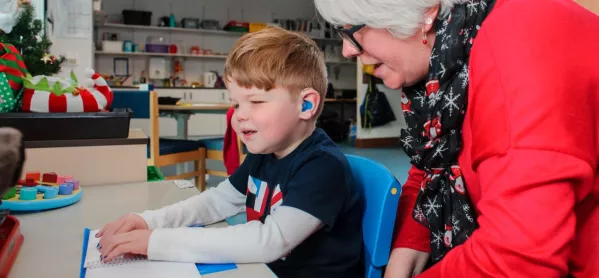Growing numbers of parents are battling to send their children away to residential special schools due to the “inadequate” provision in mainstream education, a leading academic has warned.
University of Edinburgh inclusion expert Sheila Riddell spoke out as it emerged that the Additional Support Needs Tribunal has seen its caseload increase significantly over the past year.
Tribunal president May Dunsmuir told Tes Scotland that the number of cases it heard in the year up to 31 March had grown by 40 per cent.
The tribunal, which was set up in 2005, has in the recent past been dealing with roughly 70 cases each year. The final figures for 2017-18 are not yet available, but a 40 per cent increase could mean the number of cases climbing into three figures for the first time.
The disclosure comes as the proportion of children with an identified additional support need has been rising in Scotland, and as many school budgets have been squeezed.
Ms Dunsmuir declined to comment on whether increasing concerns about the capacity of mainstream schools to cope with the rising number of children with additional needs lay behind the rise.
However, Professor Riddell said the increase in cases was likely to have been fuelled by a rise in appeals against local authority decisions to refuse to place pupils at residential special schools.
‘Inadequate’ support in mainstream schools
Professor Riddell said parents were increasingly seeking to have their children educated in independent - and often expensive - special residential schools because their needs were not being met in mainstream primaries and secondaries.
“As resources become tighter in schools and there is less support available, parents are wanting their children to go to special schools, and some of these are very expensive independent residential schools, which can easily cost more than £100,000 per child,” she said.
“These can be located some distance from the family home but it is felt by families this is a better option than inadequate support in local mainstream schools. But local authorities strongly contest these cases because these schools are very expensive.”
Professor Riddell and Ms Dunsmuir were speaking to Tes Scotland at an additional support for learning conference held in Edinburgh today
Separately, Professor Riddell told the conference - run by Scotland Policy Conferences - that the Scottish system for assessing children’s additional support needs was “no longer fit for purpose”.
“The system is so complicated nobody understands it,” she said.
She questioned the extent to which children aged 12 to 15 in Scotland would be able to exercise their new right to ask for additional support in school, given that “grown-ups and professionals don’t understand the system”. She dismissed the new right as “a paper right”.
Research published last year by the charity Enable Scotland showed that more than half of children and young people who have learning disabilities and/or autism spectrum disorders felt they were not getting the right support in school.
The same research showed that 62 per cent of class teachers had experienced stress and professional anxiety because they were worried about not having the right support in place for pupils with learning disabilities.




